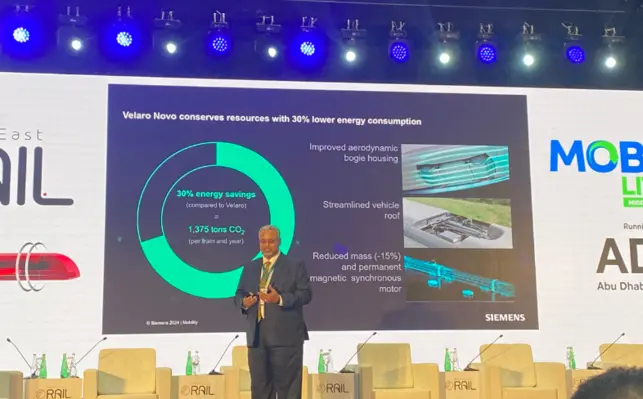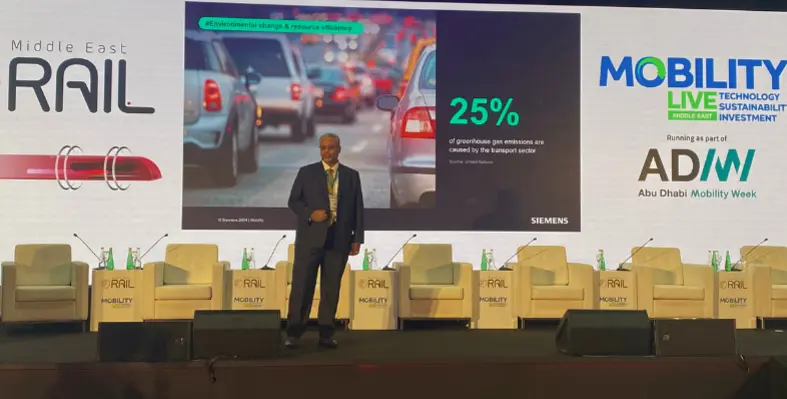The Middle East Rail took place from 30 April to 1 May this year. The event was packed with panel sessions discussing sustainability and better railway systems. Sania Aziz reports:
During a presentation titled “Shaping the future of mobility in the Middle East and Africa”, Ayman Ashour, CEO of Siemens Mobility Turnkey MEA, spoke about transforming the transportation industry in the region.
Tackling a growing population
He said that it is crucial to address population growth, greenhouse gas emissions, and sustainability, while emphasising the need for innovative solutions, such as high-speed transportation and electric vehicles, to reduce emissions and improve efficiency.
“Statistics say that the world will reach a population of 9.7 billion by 2050, which is a big number of people to move around the globe. It's not easy to keep them moving safely and seamlessly. And to move this number of people, our transportation industry is producing a large number of greenhouse gas emissions.”
“By 2032 We will have our plan for the transportation industry. That means 9.6 billion points of interest, and this will produce a tremendous amount of data. How can we transform that? If we have to be contributing to this, the cities need to be prepared to handle these challenges, including both infrastructure and across the supply chain as well.”
Increasing efficiency
Siemens Mobility is working on developing innovative high-speed rail designs to increase energy efficiency and affordability. He also spoke of the importance of design and innovation in the industry, highlighting the need for creative design to improve the passenger experience.

Siemens' technology allows for significant reductions in emissions. (Image source: Alain Charles Publishing)
“We will be able to reduce energy consumption by 25% from the traditional way of transportation, through aerodynamic train designs that reduce resistance, and using lighter materials in construction.
Each component needs to be eco-friendly and sustainable, while being priced accurately.”
Siemens Mobility is running several mobility projects across the world, with significant investments in the Middle East and North Africa region.
In Saudi Arabia for example, the company is part of the Riyadh metro project, where it is involved in creating fully automated operations, increasing passenger comfort and safety, and fixing train configuration.
In Egypt, Siemens Mobility and its consortium partners Orascom Construction and The Arab Contractors have signed a contract with the Egyptian National Authority for Tunnels (NAT), a governmental authority under the jurisdiction of the Ministry of Transport of Egypt, to create the sixth largest high-speed rail system in the world.
The 2,000 km network will connect 60 cities throughout the country, with trains that can operate at up to 230 km/h. This means that approximately 90% of Egyptians will have access to this modern, safe, and integrated rail system, according to a statement by the company.







